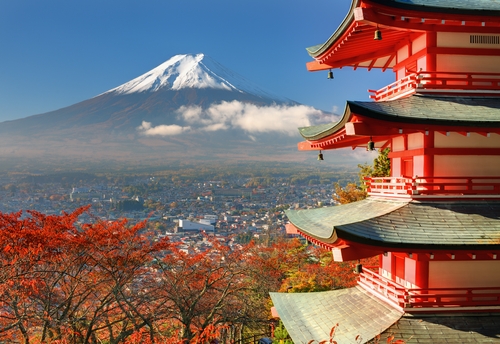
SEOUL, South Korea — The world’s oldest known man, Alexander Imich, born in 1903, died Sunday in New York.
The torch will most likely be passed to 111-year-old Sakari Momori, who comes from a country full of elderly people:Japan. The Guinness Book of World Records is investigating.
That’s not really surprising. You’ve probably heard a similar story before: The Japanese have the highest life expectancy of any major country. Women on average live to 87 and men to 80 (compared to 81 years for American women and 76 for American men). The Japanese can live 75 of those years disability free and fully healthy, according to the World Health Organization.
For decades in the US, the health mania over Japanese cuisine has taken on a life of its own, with books on the timeless “Okinawa diet” and a host of others purporting to have cracked the mystical, enlightened ways of the East.
Sorry to burst your bubble, but anybody who pushes the image of 90-year-old Zen monks taking refuge in a remote mountain monastery, feasting their life away on sushi and vegetables, is full of it.
So is anybody who proclaims the innate superiority of Japan’s food supply to the “Western diet” (How many wonderful, green healthful diets can you choose from in all of North America and Europe?).
And contemporary Japan can be a stressful place. Its hyper-urban people work long hours, at 1,745 hours per worker in 2012, suffer through a long and deadening commute, and can easily fret when a subway hold-up makes them just minutes late for meetings with their bosses.
The pressure to perform is high, and failure is frowned upon.
So how have the Japanese managed to live so long?
Cuisine could indeed play a role — although even that is up for debate.
A combination of small portions, lower-calorie foods like fish and vegetables, and beautiful eye-appealing dishes all contribute to a longer and healthier lifespan, argues Naomi Moriyama in her co-authored book “Japanese Women Don’t Get Old or Fat: Secrets of My Mother’s Tokyo Kitchen.”
“The Japanese diet is the iPod of food,” she jokes. “It concentrates the magnificent energy of food into a compact and pleasurable size.”
And then, of course, there’s the fabled Okinawa diet — coming from an island that’s markedly different, in both food and customs, from mainland Japan. Some physicians point to a trend of longevity thanks to a host of meals that carry a low long-term risk of stomach cancer or arteriosclerosis, like tofu, konbu seaweed, squid and octopus.
But food can’t possibly be the only answer, especially with the downsides to certain Japanese dishes that carry high salt content or that are undercooked. Sushi can put diners at risk of H. Pylori infections, an ailment that can lead to stomach cancer.
Others hint at the relative happiness and stress-free lives of Japan’s elderly, who can live to old age without hefty health bills thanks to the help of children. Senior citizens can enjoy their final years without withering away in hospitals that pour resources into extending their lives more than ensuring quality of life.
The tradition of an elderly couple leaning on their daughter-in-law, though, isn’t as big as it used to be, thanks to the entrance of more women in the workforce.
But Japan still trumps when it comes to old age.

